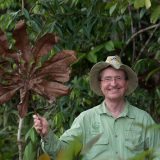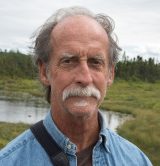Thomas E. Lovejoy
Symposium Welcome and Introduction
Plants are of foundational importance for ecosystems but often unrecognized (plant blindness). They constitute the base of food chains, including our own. They are essential players in the global carbon cycle and thus also in addressing climate change. The world cannot successfully address the biodiversity challenge without including plants.
About the Speaker
University Professor of Environmental Science and Policy, George Mason University, USA
Dr. Thomas Lovejoy, an innovative conservation biologist, coined the term “biological diversity” (1980). He is the Founder and President of the non-profit Amazon Biodiversity Center and the renowned Biological Dynamics of Forest Fragments Project. In 2010 he was elected University Professor in the Department of Environmental Science and Policy at George Mason University. He currently also is Senior Fellow at the United Nations Foundation based in Washington, DC. Spanning the political spectrum, Tom has served on science and environmental councils under the Reagan, Bush, and Clinton administrations. At the core of these many influential positions are seminal ideas, which have formed and strengthened the field of conservation biology. In the 1980s, he brought international attention to the world’s tropical rain forests, and in particular, the Brazilian Amazon, where he has worked since 1965. With three co-edited books (1992, 2005, and 2019), he is credited as a founder of the field of climate change biology. He also founded the series Nature, the popular long-term series on public television. In 2001, Tom was awarded the prestigious Tyler Prize for Environmental Achievement. In 2009 he was the winner of BBVA Foundation Frontiers of Knowledge Award in the Ecology and Conservation Biology Category. In 2009 he was appointed Conservation Fellow by the National Geographic and Explorer at Large. In 2012 he was recognized by the Blue Planet Prize. Tom holds B.S. and Ph.D. (biology) degrees from Yale University.










 Location Online Symposium
Location Online Symposium